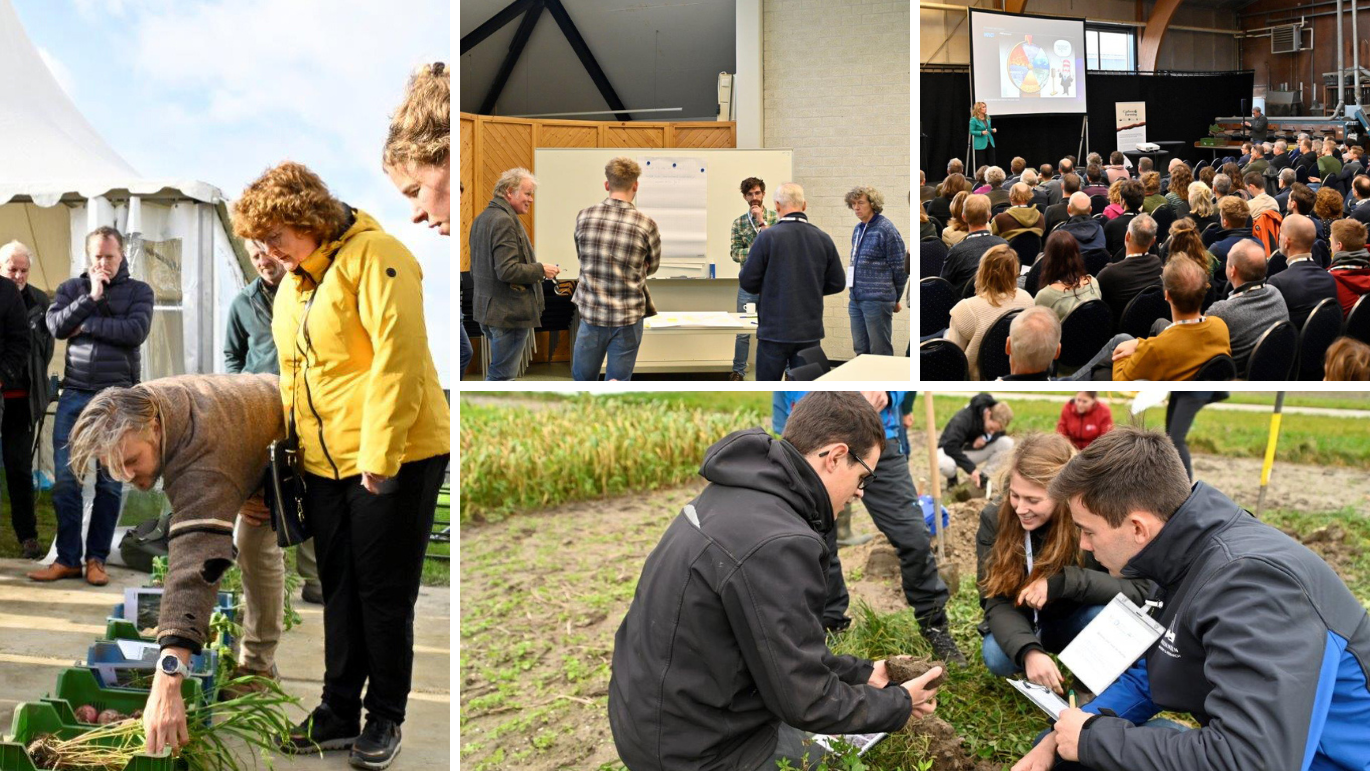Knowledge day on soil on climate brought knowledge and experience together
How can you, as a farmer, arm yourself against the obvious climate change? And how can you, as a farmer, contribute to reducing greenhouse gas emissions with good soil management? Fortunately, more and more information is available about both climate change and possible solutions in soil management to cope with this challenge. On November 14, about 180 Dutch farmers, farm visitors, advisors, researchers and policy staff started working on these issues at the Soil and Climate Knowledge Day in Lelystad, the Netherlands.

Climate change is an important issue in agriculture and soil management is one of the key factors to solve this challenge. Integrated solutions that look as well at climate mitigation as climate adaptation as well as effects on other societal issues are important. Research has delivered many results and solutions yet. This research leads also to questions how to disseminate knowledge and implement solutions and to identify needs for further research. At this knowledge day we discussed the results and solutions from research to inform farmers, industry and policy makers and to inspire them to take action.
Organization of the knowledge day
EJP SOIL Netherlands organized this day in a cooperation between several research programs and knowledge organizations. We combined efforts to have a broader reach, a more interesting program and to stimulate discussion. We organized a broad set of interactive workshops which researchers and stakeholders from different programs and backgrounds prepared together. With the focus on a specific topic and not on the results of a single project, the workshops are much more demand driven with a stronger knowledge transfer compared to single project communication. This was enhanced by an inspiring talk of Weather & Climate ambassador Helga van Leur, at the start of the day. With this set up we created a strong positive and open atmosphere at this day.
Workshops and knowledge sessions
The workshops were the central part of the day. Participants were able to attend three informative and interactive workshops. The weather gods turned out to be reasonably kind to Lelystad, which meant that the workshops outside were enjoyable. The outside workshops were focused on assessing soil profiles and demonstration of (new) measurement techniques on nitrous oxide, bulk density and soil mineral nitrogen. Some of the workshops were very practical, focused on soil compaction, irrigation, used of decision support tools and costs and benefits of soil management options. Some other workshops were more strategic, focused on crop rotations and fertilization strategies in a changing climate. Another category of workshops was more policy oriented on carbon farming, the soil monitoring directive or impact of climate mitigation options in regions.
Carbon sequestration
The closing session focused on the potential for carbon sequestration in the Netherlands, based on results from the Dutch Smart Land Use program. Participants could test their knowledge on carbon sequestration with a quiz. After the quiz, the Smart Land Use animation about carbon capture was shown and the presentation of the summary of 5 years of Smart Land Use was presented to Albert de Vries from the Ministry of Agriculture, Nature and Food Quality and Tineke de Vries from LTO.
The day was organized by Wageningen University & Research, Delta plan Agricultural Water Management and BO Akkerbouw with various partners. Contributions have been made from EJP SOIL, the Smart Land Use program, the knowledge transfer project on Better Soil Management, the public-private research program on Climate Adaptation Open Field Crops, the public-private research program on fertilization management (BAAT), the public-private research program on Green Manures and the public-private research program on Carbon Farming.
Watch the after movie of the knowledge day (in Dutch)
View all presentations from the workshops here (in Dutch)
Watch the animation about carbon sequestration from Smart Land Use (in Dutch)
Read the summary of 5 years of Smart Land Use (in Dutch)